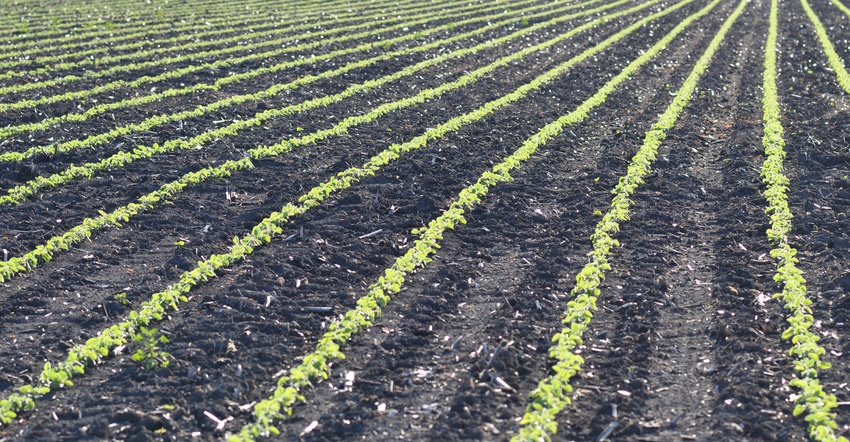December 30, 2016

Do you want a challenge? In 2012, a farm management client approached me about transitioning a 500-acre farm to organic production. I attended several organic field days and conferences and quickly learned that one can grow normal-yielding crops organically and have nearly weed-free organic fields on a fairly large scale. Being a graduate of Western Illinois University, I spent many hours talking with Dr. Joel Gruver and Andy Clayton on what was and wasn’t working on the WIU Allison Organic Research Farm. Here’s what I learned:
1. Decide on a system. By the spring of 2014, I had settled into a system approach using a corn-soybean-wheat rotation with a cereal rye cover crop planted after corn. After wheat and ahead of the corn, we used a mix of sunn hemp, cowpeas and tillage radish to fix nitrogen and recycle other nutrients. I chose this mix because it winter-kills. An added benefit of this three-way mix that none of us expected? Weed suppression.
2. Manage the system. We plant soybeans directly into standing rye, using a roller-crimper to kill the rye, which leaves a thick mulch to suppress weeds. We plant wheat after harvesting the soybeans.
For the most part, we have been very pleased with weed control. In the corn, that is accomplished by the cover crop and several more trips with tillage tools. With the no-till soybeans in the rye mulch having fewer weeds, the farm tenant has more time to concentrate on weed control in the corn.
3. Consider carbon footprint. With more trips across the organic cornfield, I have been asked about our carbon footprint with organic. I have found no hard data either way, but I would argue that our carbon footprint is more than offset by the carbon sequestration of living plants on the farm nine months out of the year vs. five months in conventional farming.
4. Track results. The 2015 corn crop was a train wreck due to 26 inches of rain in June, and like everyone else, the wheat was full of vomitoxin. However, the soybeans made 54 bushels per acre. In 2016, the corn made 190 bushels per acre, wheat made 62 bushels per acre, and soybeans made 50 bushels per acre. If we can repeat that in 2017 when the farm is certified organic, the farm will be very profitable.
5. Know additional costs. Transitioning to organic can be a trying period not only with the learning curve, but also financially. For three years, you’re purchasing organic inputs and selling at conventional prices. The organic corn inputs in our system are about $140 per acre more than conventional corn; our wheat and soybean inputs are on par or a little less than their conventional counterparts. Transition to certified organic production takes 36 months from the last application of an unapproved product. If you plan correctly, your third crop, even though it is not certified when planted, is certified organic when harvested.
Organic farming is not for everyone or every farm. Before you plant your first seed of transitional grain, assess your farm: What infrastructure do you need? Grain bins? Tile? Fertility buildup? Lime? Will you plant food-grade or feed-grade crops? Food-grade tends to have a higher price but a lower yield. Where are you going to market your crops? Take time to go to organic field days and conferences. Talk to successful organic farmers to find out what works for them and what doesn’t. Make a Plan A and Plan B for your farm and be flexible. And keep excellent records. Your organic certification depends upon it.
Woodrow is an accredited farm manager with Farmland Solutions, Sherman. He is a member of the Illinois Society of Professional Farm Managers and Rural Appraisers, whose members regularly contribute to this column. Have a farm management question or topic you’d like addressed? Email Carroll Merry at [email protected].
About the Author(s)
You May Also Like




